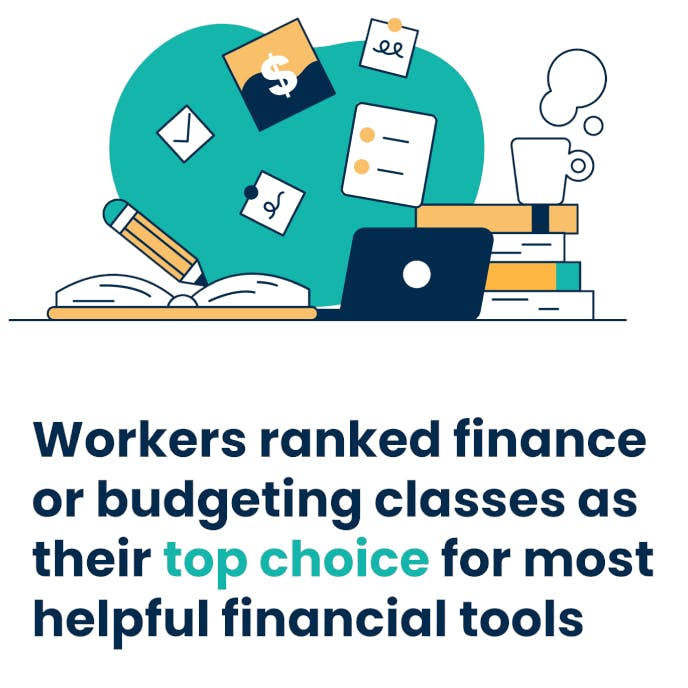Retirement Roadblocks Survey 2025
How employer-led financial literacy can empower employee retirement planning and workplace engagement
The Retirement Roadblocks Survey 2025 suggests that many U.S. workers treat their 401(k)s as emergency funds. However, they also desire employer-provided financial education to enhance retirement readiness and boost overall job satisfaction.
Key Takeaways
Many workers are treating their retirement savings as emergency funds, affecting concerns about retirement.
A majority of workers want employer-provided financial literacy to assist with retirement planning.
Employers can invest in low-cost financial wellness programs and tooling to empower their employees and retain talent.


Employees cite retirement as one of their biggest financial concerns
Financial literacy can boost employee loyalty and retention
Our latest report found that many U.S. workers treat retirement savings like an emergency fund, using them for unexpected costs. This can lead to feelings of unpreparedness for the future. But one theme is also clear—workers want employers to provide retirement education to help them better prepare for the future.
Investing in employees' financial well-being may yield significant benefits for employers. Notably, 87% of employees are more likely to stay with an employer offering these valuable resources, suggesting a link between financial support and loyalty. Employer-provided financial literacy programs may help attract top talent, cultivate an engaged workforce, and dramatically improve employee retention.

Employer-led financial resources can unlock a more engaged, loyal, and retirement-ready workforce
Employees prefer practical financial education
33% of employees say they’re not receiving any financial resources from their employers, indicating a potential missed opportunity for employers to provide support. Our report indicates a strong desire for employer-sponsored educational resources that encompass areas such as 401(k) contributions, tax planning, and emergency savings.
Employers may think financial literacy means expensive tooling. But our report suggests employees prefer practical, accessible resources. This can include finance or budgeting classes, literacy hubs, or retirement savings calculators. These cost-effective resources can help foster employee engagement and ensure retirement readiness.
Methodology
All figures, unless otherwise stated, are from YouGov Plc. The total sample size was 2008 full-time workers. Fieldwork was undertaken between 18th - 26th November 2024. The survey was carried out online. The figures have been weighted and are representative of all US full-time workers (aged 18+).
Subscribe to our Retirement Roadmap newsletter
Retirement isn’t just a destination. It’s a journey, and we’re here to help you. Our newsletter delivers succinct and timely tips, reviewed by Financial Advisors, to help you navigate the path to financial independence.
By providing your email above or subscribing to our newsletter, you agree to our Privacy Policy. You also elect to receive communications from Human Interest.